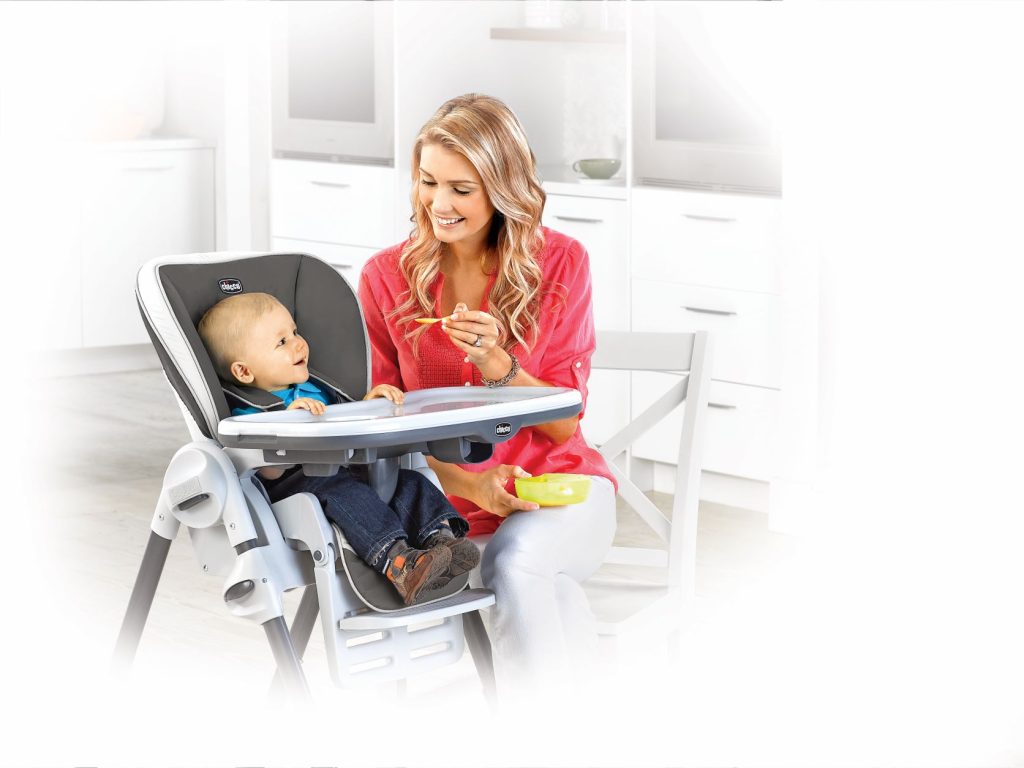Starting to introduce solid food to your baby is an important milestone, but it usually comes with some trepidation. Are you starting at the right time? Is this the best thing for my baby? We are here to help with useful tips from the team at the Chicco Baby Research Centre.
Baby weaning, advice for new parents
The change in diet for your baby as you start weaning and introducing solid food signals a major emotional and cognitive development of your baby.
Weaning, also known as “complementary feeding”, consists of the gradual inclusion of foods other than breast milk in baby’s diet.
When you start adding solids to your babies diet it doesn’t mean you have to stop breastfeeding. Weaning can and should be a slow process with breastmilk or formula still an important source of nutrients and should be continued when solids are introduced.
When to start weaning
There’s no specific moment when weaning should begin. The National Health and Medical Research Council (NHMRC) Infant Feeding Guidelines (2012) and the World Health Organisation (WHO) Exclusive Breastfeeding Statement (2011) recommend starting at around 6 months. Babies should not start solid food before the 17th week of life, and not later than the 26th. This is because babies develop a more mature digestive system at around 5 months old, along with the neuromuscular abilities that enable them to swallow, grasp a spoon and sit upright.
According to the Sydney Children’s Hospital there are a number of ways to see your child may be ready to move to solids:
- Sitting upright when supported, with good control of the head
- Wanting to put things in his/her mouth
- Interest in food eaten by others
- Increased appetite, more frequent feeding
The phases of weaning
There are no pre-established “recipes” for weaning; generally speaking, fruit is recommended as a first food due to the fact that it has a sweet taste, is rich in vitamins and minerals and has a semi-solid consistency.
NSW Health recommends as long as iron-rich foods(*) are included in first foods, foods can be introduced in any order and at a rate that suits your baby.
First foods to include:
- Iron-enriched rice cereal*
- Minced, stewed or grated meat, poultry & liver (cook, freeze then grate)*
- Fish
- Cooked legumes, tofu and tempeh*
- Cooked vegetables (e.g. carrot, potato, pumpkin)
- Fruit (e.g. apple, banana, pear, melon)
- Cooked egg (yolk & white)
- Bread, pasta, toast fingers and rusks
- Nut pastes/spreads
- Full-fat cheese, custard and yoghurt
Preparing this food can be time consuming, so you may want to invest in some tools to help save you time in the kitchen. The Chicco Easy Meal Steamer Blender can chop, steam and puree food in one neat gadget making this transition a breeze.
More than just a change in diet
This is a big change for both you and your baby, it is the first step they take towards independence. It can also be a fun time as you experiment with different foods and recipe and find out what your baby likes and doesn’t.
To help your little one on this journey, make sure you introduce new foods gradually, without ever forcing baby to eat. Then, establish a routine that helps your little one approach food positively, for example by having babies own dinner set.

